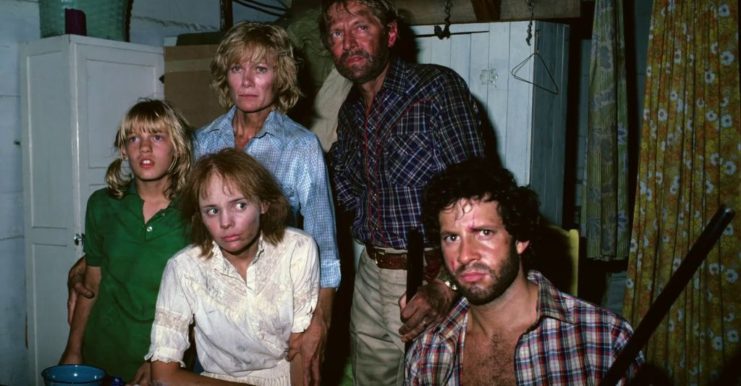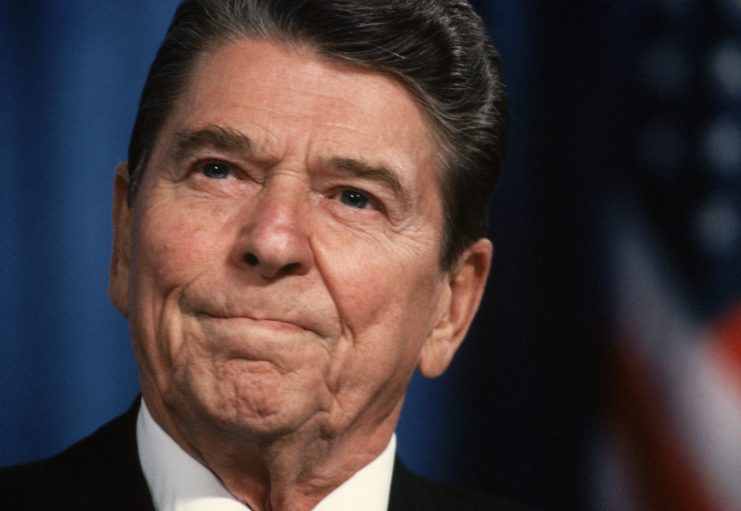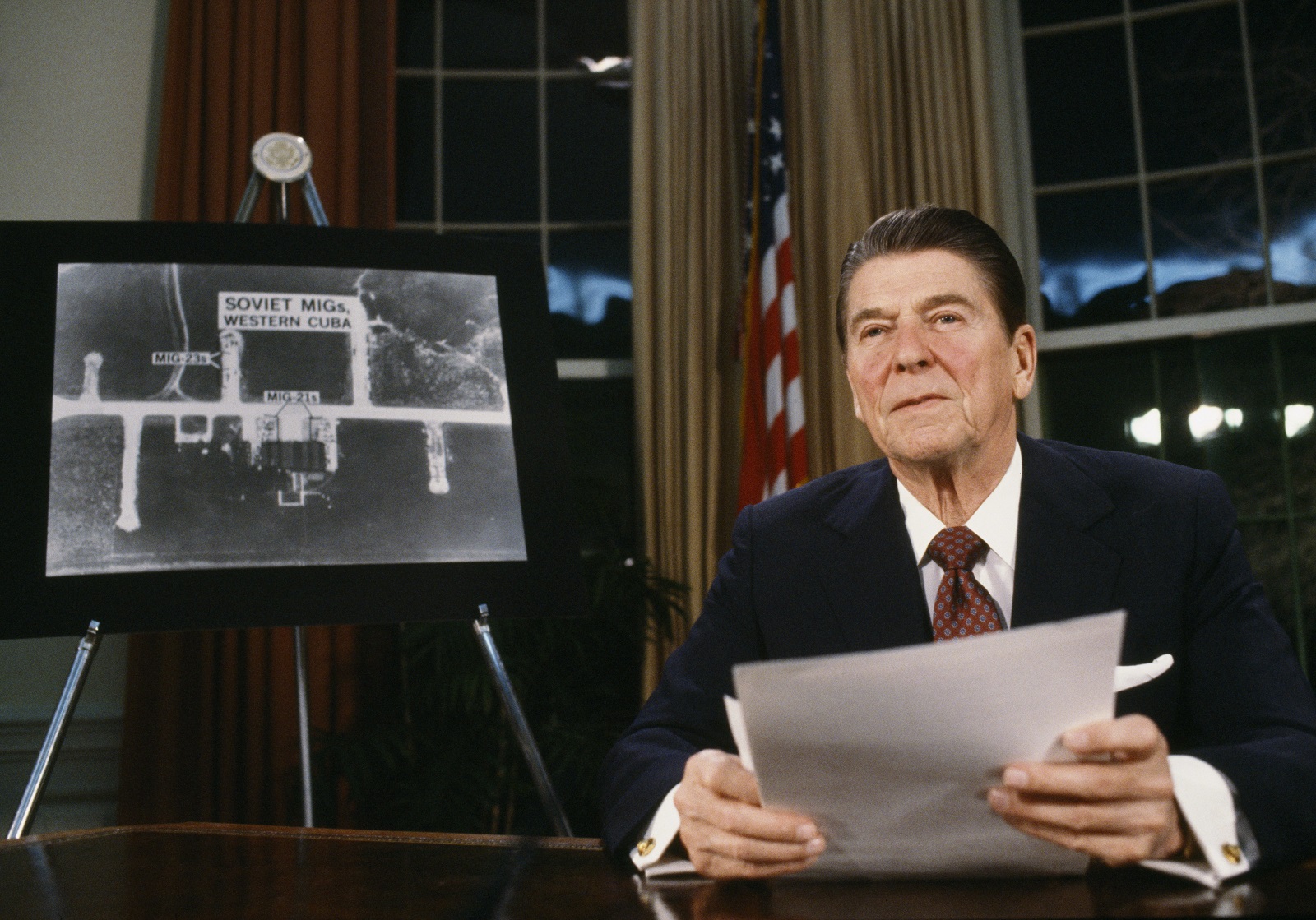The 1983 television movie The Day After depicts a dark scenario where tensions between the US and the Soviet Union escalate to the point of nuclear war. As this was a very real possibility at the time of the movie’s release, the film captivated audiences, including then-US president Ronald Reagan.
When presented with this glimpse of a possible future, the general public believed it was evidence for why nuclear weapons were not the answer. However, for Reagan, the movie reinforced his own nuclear policies.
The Day After

The movie focuses on a few rural US states which are home to farmers, city-goers, and nuclear missile launch sites. The US and Warsaw Pact countries clash in Europe, culminating in the use of tactical nuclear weapons on the battlefield. With a large-scale nuclear war almost certain, US citizens begin panic hoarding supplies and attempting to leave major population centers. America’s ominous Emergency Broadcast System is featured in the movie, issuing warnings about the situation.
Soon though the US and Soviet Union launch nuclear missiles towards each other (the film intentionally doesn’t show who fired first), and the movie does its best to depict the unfathomable carnage that would result from numerous nuclear attacks.
Ronald Reagan

Reagan was one of the first people to watch the movie, having been shown the atomic spectacle a month before it was screened. Like many others, the realistic portrayal of events impacted Reagan and reminded him why nuclear war would be so devastating. However, his solution to stopping nuclear war was more nuclear weapons.
After seeing the movie Reagan wrote in his diary:
“Columbus Day. In the morning at Camp D., I ran the tape of the movie ABC is running on the air on Nov. 20. It’s called “The Day After.” It has Lawrence, Kansas wiped out in a nuclear war with Russia. It is powerfully done—all $7 mil. worth. It’s very effective & left me greatly depressed. So far they haven’t sold any of the 25 spot ads scheduled & I can see why. Whether it will be of help to the “anti-nukes” or not, I can’t say. My own reaction was one of our having to do all we can to have a deterrent & to see there is never a nuclear war.”
For Reagan, it soon became obvious that the film was going to stand as a reason why nuclear war should never be an option, aligning with those who believed nuclear weapons should be removed from arsenals around the world.
To counter this sentiment the Reagan administration sent their Secretary of State, George Shultz, on television. Shultz had the job of explaining how the movie actually proved why Reagan’s nuclear weapon-focused policies were the best method of preventing nuclear war.
ABC hosted a live discussion after the film was screened. Taking part in this discussion were some big names, including Robert McNamara, Henry Kissinger, William F. Buckley Jr., Brent Scowcroft, Carl Sagan, and Elie Wiesel.
Of this, Reagan wrote in his diary:
“George [Shultz] is going on ABC right after its big Nuclear bomb film Sunday night. We know it’s “anti-nuke” propaganda but we’re going to take it over & say it shows why we must keep on doing what we’re doing.”
The discussion was prefaced with a message from Shultz. “The film is a vivid and dramatic portrayal of the fact that nuclear war is simply not acceptable,” he said. “And that fact and the realization of it has been the basis for the policy of the United States for decades now—the successful policy of the United States. Based on the idea that we simply do not accept nuclear war and we’ve been accepting in preventing it.”
More From Us: Marilyn Monroe’s Career Began With a Decision by Ronald Reagan in 1944
Shultz also explained why nuclear weapons’ primary use is not as weapons, but as a deterrent to remind an opposing nation that what can be done to us can be done to you.
Despite Ronald Reagan’s personal stance on nuclear weapon production, the US and the Soviet Union actually decreased their stock of such weapons while Reagan was in office.
